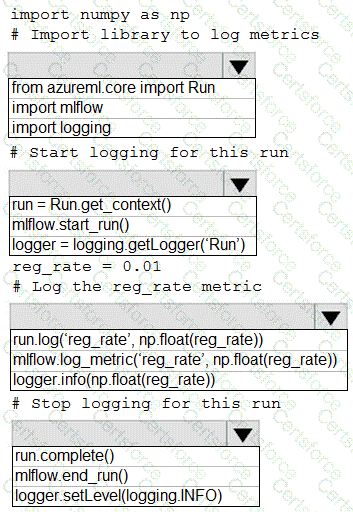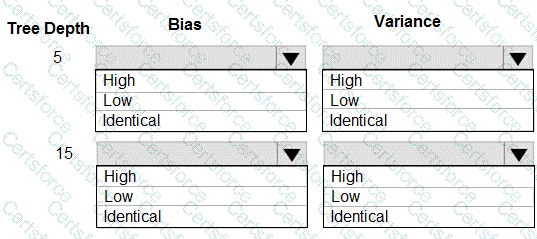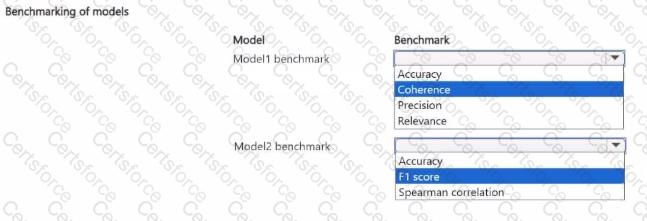You are running a training experiment on remote compute in Azure Machine Learning.
The experiment is configured to use a conda environment that includes the mlflow and azureml-contrib-run packages.
You must use MLflow as the logging package for tracking metrics generated in the experiment.
You need to complete the script for the experiment.
How should you complete the code? To answer, select the appropriate options in the answer area.
NOTE: Each correct selection is worth one point.

You need to select a pre built development environment for a series of data science experiments. You must use the R language for the experiments.
Which three environments can you use? Each correct answer presents a complete solution. NOTE: Each correct selection is worth one point.
You manage an Azure Machine Learning workspace. You submit a training job with the Azure Machine Learning Python SDK v2. You must use MLflow to log metrics, model parameters, and model artifacts automatically when training a model.
You start by writing the following code segment:

For each of the following statements, select Yes If the statement is true. Otherwise, select No.

You are using a decision tree algorithm. You have trained a model that generalizes well at a tree depth equal to 10.
You need to select the bias and variance properties of the model with varying tree depth values.
Which properties should you select for each tree depth? To answer, select the appropriate options in the answer area.

: 210 HOTSPOT
You register the following versions of a model.

You use the Azure ML Python SDK to run a training experiment. You use a variable named run to reference the experiment run.
After the run has been submitted and completed, you run the following code:

For each of the following statements, select Yes if the statement is true. Otherwise, select No.
NOTE: Each correct selection is worth one point.

You create a binary classification model. The model is registered in an Azure Machine Learning workspace. You use the Azure Machine Learning Fairness SDK to assess the model fairness.
You develop a training script for the model on a local machine.
You need to load the model fairness metrics into Azure Machine Learning studio.
What should you do?
You manage an Azure Machine learning workspace. You develop a machine teaming model.
You are deploying the model to use a low-pointy VM mm a pacing discount.
You need to deploy the model.
Which compute large! should you use?
You create an Azure Machine Learning compute resource to train models. The compute resource is configured as follows:
Minimum nodes: 2
Maximum nodes: 4
You must decrease the minimum number of nodes and increase the maximum number of nodes to the following values:
Minimum nodes: 0
Maximum nodes: 8
You need to reconfigure the compute resource.
What are three possible ways to achieve this goal? Each correct answer presents a complete solution.
NOTE: Each correct selection is worth one point.
You train a machine learning model by using Aunt Machine Learning.
You use the following training script m Python to log an accuracy value.

You must use a Python script to define a sweep job.
You need to provide the primary metric and goal you want hyper parameter tuning to optimize.
How should you complete the Python script? To answer select the appropriate options in the answer area
NOTE: Each correct selection is worth one point.

You manage an Azure Al Foundry project.
You plan 10 build a RAG solution. The solution must include two models:
• One for text output, named Model1. This model must resemble human language and read naturally.
• One for creating embeddings, named Model2. This model must maximize the retrieval of relevant results (high recall)
You need to compare different models by using benchmarking metrics to select the appropriate models for Model1 and Model?
